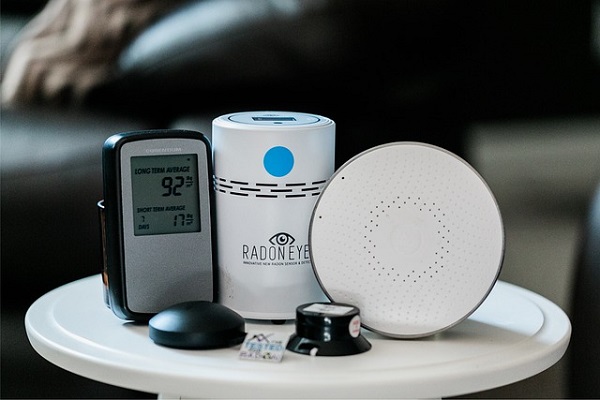 Credit: Pixabay
Credit: Pixabay
On the occasion of Luxembourg Radon Week, the Health Directorate is organising the national Radon day aiming to raise awareness about this radioactive gas on Thursday 12 October 2023.
A conference (in French) aiming to raise public awareness of radon-related risks, assessing the current scenario in Luxembourg and disseminating insights into remediation methods through the expertise of building specialists will take place at the Institut de Formation Sectoriel du Bâtiment (IFSB) in Bettembourg. The event has a broad target audience, encompassing homeowners, construction companies and municipal administrations.
Radon is a naturally occurring radioactive gas seeping from the subsoil and rocks, which infiltrates buildings through crevices and openings, all while remaining odourless, inert and invisible. The concentration of radon can significantly vary from one building to another.
When inhaled at high concentrations over an extended period, radon poses a threat to lung health, potentially leading to cancer. The World Health Organization (WHO) ranks radon as the second leading cause of lung cancer after smoking. Moreover, it presents a potential occupational health hazard for workers.
Radon is accountable for approximately one-third of the population's exposure to ionising radiation in Luxembourg. The 2019 radiation protection law paved the way for the establishment of radon zones, facilitating targeted measures to prevent or mitigate radon exposure. A reference level has been set at 300 Bq/m3. When radon concentrations surpass this threshold, it becomes imperative to undertake remedial actions, particularly in workplaces. Employers are obligated to have radon exposure assessed at workplaces situated within radon zones or specific workplaces before 1 January 2028. The Radiation Protection Department (DRP) of the Health Directorate oversees actions related to radon in the air.
Measuring radon is a straightforward process, typically involving passive detectors exposed for two to three months between 1 October and 30 April of the following year. In the context of private housing within Luxembourg, occupants can request detectors via the website sante.lu. For businesses, the Health Directorate has created a guide outlining radon measurements in the workplace, available on the same website. Luxembourg's Ministry of Health encouraged employers to comply with the legislation and minimise radon exposure risk by having approved laboratories conduct gas measurements in their buildings' lowest occupied levels. If the concentrations exceed the reference level, corrective measures are mandated.
Luxembourg has implemented a National Radon Action Plan since 2017, with a recent renewal covering the 2021-2028 period. The key objectives of this plan encompass prevention in the construction of new buildings, a reduction in homes with elevated radon levels and the identification and remediation of workplaces surpassing national benchmarks.
For additional information, resources and guidance can be found on the following websites: www.radioprotection.lu; a "Radon" thematic file in the "Citizen Space" of the sante.lu site; a list of approved laboratories available on sante.lu. The conference can be accessed via the link: https://sante.public.lu/fr/agenda/2023/10/journee-nationale-radon.html.








